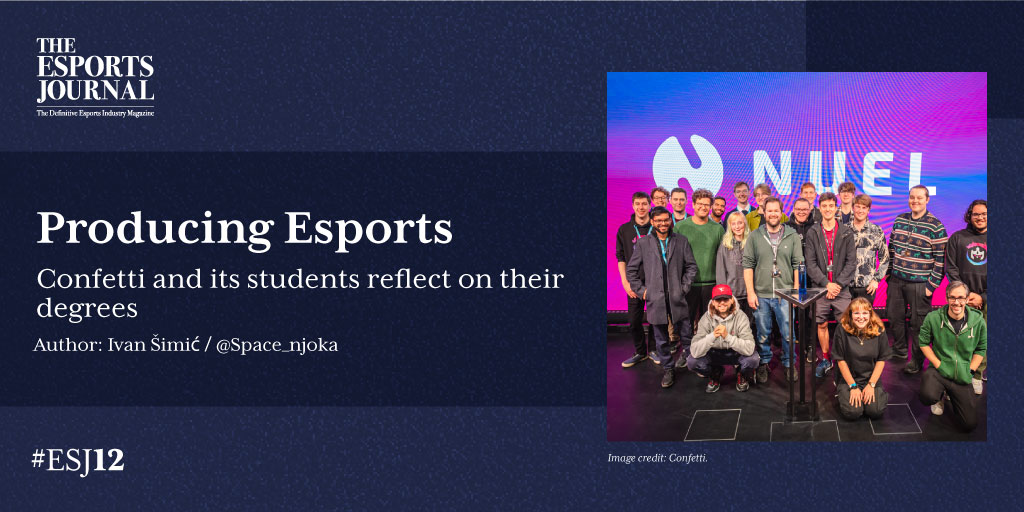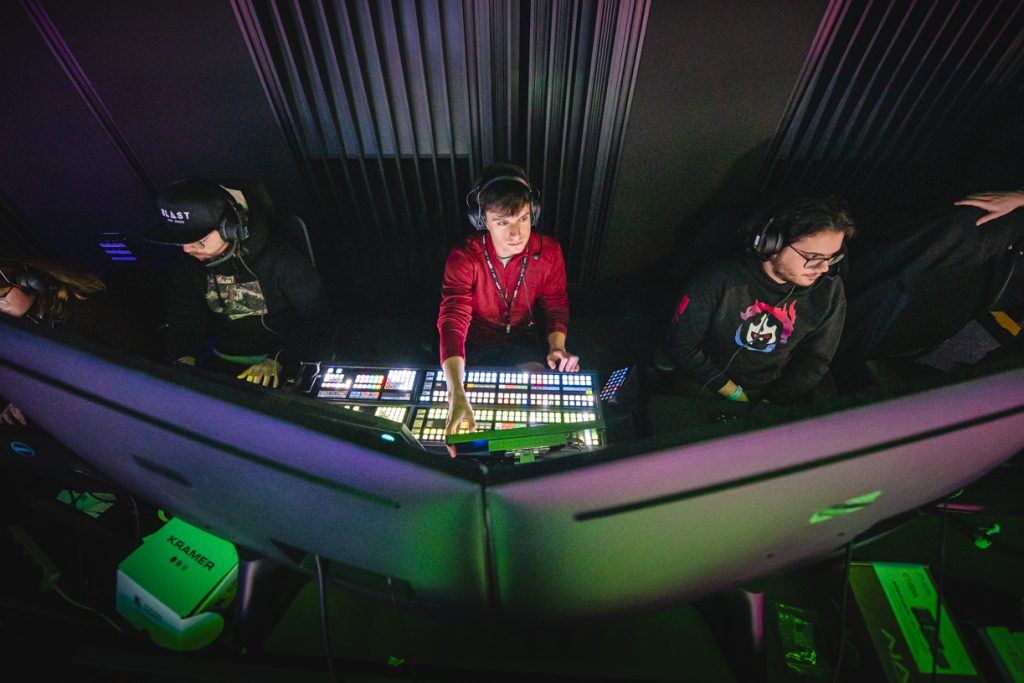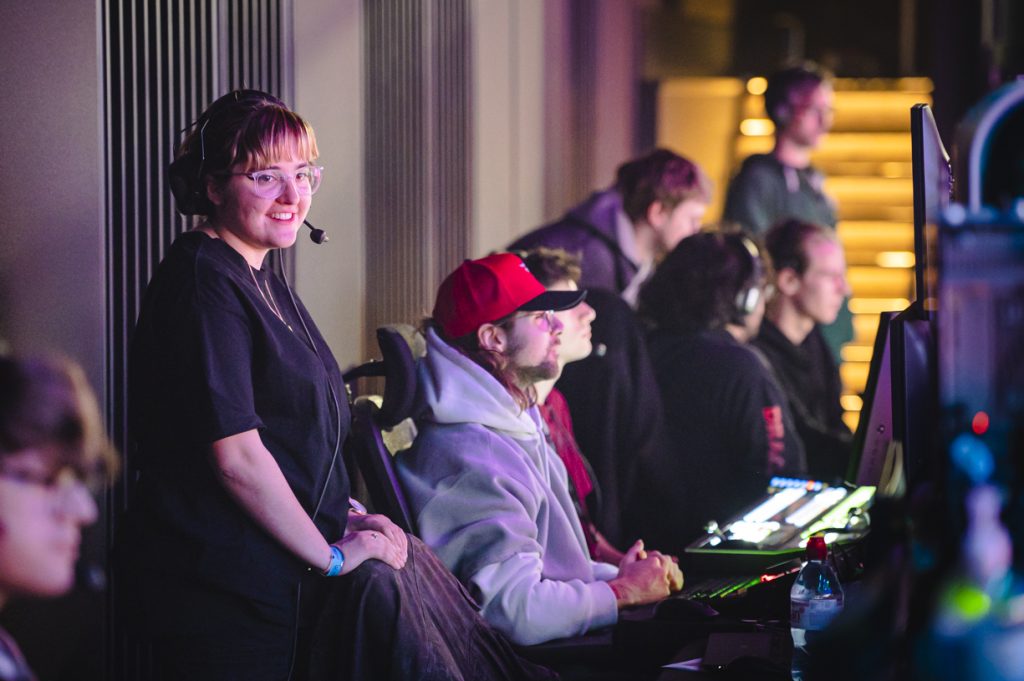Notifications
ALL BUSINESS
COMIDA
DIRECTORIES
ENTERTAINMENT
FINER THINGS
HEALTH
MARKETPLACE
MEMBER's ONLY
MONEY MATTER$
MOTIVATIONAL
NEWS & WEATHER
TECHNOLOGIA
TV NETWORKS
VIDEOS
VOTE USA 2026/2028
INVESTOR RELATIONS
COMING 2026 / 2027
ALL BUSINESS
COMIDA
DIRECTORIES
ENTERTAINMENT
FINER THINGS
HEALTH
MARKETPLACE
MEMBER's ONLY
MONEY MATTER$
MOTIVATIONAL
NEWS & WEATHER
TECHNOLOGIA
TV NETWORKS
VIDEOS
VOTE USA 2026/2028
INVESTOR RELATIONS
COMING 2026 / 2027
About Me
 Latinos Media
Latinos Media Latinos Media provides all types of news feeds on a daily basis to our Members
Posted by - Latinos Media -
on - June 17, 2023 -
Filed in - Esports -
-
764 Views - 0 Comments - 0 Likes - 0 Reviews

This article was originally published in Esports Insider’s print magazine The Esports Journal Edition 12 on April 4th 2023. You can buy a print copy here or read the edition online for free here.

In 2020, Confetti Institute of Creative Technologies, a tech-focused specialist education provider and part of Nottingham Trent University, became the first in the UK to offer a dedicated esports production degree. Unlike most other esports degrees, which teach esports more broadly, Confetti is laser focused on giving students everything they need to kickstart careers in production.
With the first cohort of students approaching the end of their three-year degree programmes, The Esports Journal got in touch with Confetti to see what life at the Institute is like for emerging students — and what that means for their careers.
Gin Rai, Confetti’s Esports Manager and Higher Education Course Leader, discussed the way the university body views its esports programme and the direction it is headed, together with students Alex Calladine, James Frost, Rafael Barbosa, and Rebecca Green.
As Rai put it, last year was ‘stacked’ for Confetti. The Institute was a key partner in the Commonwealth Esports Games; it has a new esports facility currently being developed at Whitechapel in London, and Confetti deepened its partnership with the NUEL (National University Esports League). The Institute has also validated and is recruiting for its MSc in Esports Production postgraduate degree, allowing students to delve deeper and develop further as production specialists.
Following the rapidly evolving industry, the team are also continually developing themselves and the courses to match. “I don’t think there will ever be a part of the degree that will stop being worked on, and I mean that from my heart,” Rai said. “These last couple of years of doing the esports production degree, there were many really valuable technology driven lessons learned, and ways in which we can enhance the learning experience.”
Rai exuded pride at the progress the students had made in the last two to three years, especially of the real life work they did during that time. He said the students are now able to enter the job market at a high level, a core goal of the degree. “I wouldn’t say that there is a light at the end of the tunnel,” Rai continued. “We are well out of the tunnel now, and it’s very gratifying and I am really proud and excited to be a part of this.”
 NEUL Winter Finals 2022. Pictured (L-R): James Frost, Alex Calladine, Rafael Barbosa. Image credit: Confetti
NEUL Winter Finals 2022. Pictured (L-R): James Frost, Alex Calladine, Rafael Barbosa. Image credit: Confetti
All four of the students The Esports Journal spoke to supported a variety of key events and worked with different brands during their time at Confetti. Some worked with acclaimed game developer Riot Games on the TFT Dragonlands Championship in November 2022, while others assisted the likes of BLAST and ESL Gaming on the BLAST Finals Lisbon and IEM Rio Major 2022.
A number of Confetti students also worked on several key Amazon UNIVERSITY Esports events delivered by NUEL and their international partner, GGTech, including the UK and Ireland Winter Finals 2022 held at the institute’s own Confetti X hub in Nottingham. What the students have in common is that they all worked their way up from a rudimentary understanding of the esports industry to being able to carry their own weight on major esports broadcasts.
While the first year focuses on developing fundamental skills in production and media creation using Adobe products and getting familiar with the technology, from year two onwards things really start to take shape. James Frost, for example, did more than 300 hours of broadcast in his second year from January to November 2022. “If the me of this time last year and the me today met, they would not know who each other were,” Frost laughed.
The propensity for quick learning and even quicker change was shared by all the students. The Esports Journal spoke to Frost, who also works as an observer and was a semi-professional CS:GO player in the past, added that real life experience on esports projects was what really shifted him towards production. Frost contemplated going pro for a long time, but decided to take the decisively more structured route towards working in broadcast and production via Confetti.
Rebecca Green, on the other hand, finished studying games technology in college in 2017, but was drawn to Confetti by its esports production course. Talking about the ins and outs, she noted that the course helped her develop in a way that surprised even her — she’d gone from developing games, to exploring games production, to observing League of Legends matches, and trying to work in esports marketing before finally settling on broadcast production.
Yet a good degree course won’t just teach you hard skills; it’ll equip you with an adaptable mindset and the soft skills needed to succeed in a given industry. Speaking to Confetti’s students, there is a strong sense of self-reliance present, and all of the students mentioned that they had to leave their comfort zone frequently — but enjoyed doing it.
Green told The Esports Journal that the best advice she can give is based not on hard skills, but rather on soft ones. Communication, networking, and your digital footprint can sometimes mean more than the fact that you can produce a segment on air, an important lesson the Confetti students have learnt.
“Be nice to people,” Green added. “Especially when you’re starting out, if you are just nice and they just like being around you they will give you opportunities. Don’t knock it until you try it and don’t ever hold yourself back from trying different things.”
Rafael Barbosa, a second year student, well nested within the esports production industry, has recently worked on the IEM Rio Major and the BLAST Premier: Spring Finals in Lisbon, Portugal, his home country. Through networking and freelancing for different production companies during his time at Confetti, Barbosa managed to land jobs that not many students have access to.
 NUEL Winter Finals 2022. Pictured: Rebecca Green. Image credit: Confetti
NUEL Winter Finals 2022. Pictured: Rebecca Green. Image credit: Confetti
“Coming into university during open days and setting up something small can lead to you learning more,” Barbosa said. “Just get involved outside of [the] course hours you have. You will have a busy time, but it is definitely worth it.”
Alex Calladine, a third year student, explained that Confetti teaches students to be prepared for the massive diversity in event setups in esports, particularly the vast differences in software and hardware between venues. Confetti teaches its students to work with all sorts of industry-leading hardware and software, from entry level to arena-grade, best of the best, all of which are commonplace inside and outside the esports industry.
Calladine has amassed thousands of hours working with some of the biggest esports production teams and broadcast organisations including Gfinity, BLAST, FACEIT, and GGTech. He interviewed for and has been recruited by Confetti Media Group as a production technician, vision mixing and directing alongside supporting the wider business as an engineer. All of this, before graduating.
The perspective of the students themselves shines a new light on the way esports courses function. There is a degree of disciplinary freedom that is not always present at university, but that same freedom makes every student responsible for their own story even more so than traditional university courses.
The team behind Confetti have created a framework through which every student can define their own production career, in the esports industry and beyond — as evidenced by the students who are doing just that. With the first-ever cohort of esports production students soon to graduate, Confetti’s future is starting to take shape.